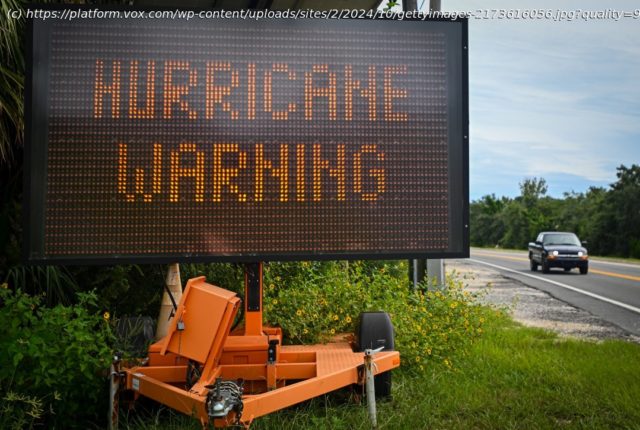Florida’s new law is overlapping with Hurricane Helene emergency response
In the wake of Hurricane Helene, a devastating Category 4 storm that has ravaged the Southeast, leaders are rushing to restore homes, infrastructure and power for millions of people. But amid the overwhelming destruction and chaos, and a death toll already exceeding 160 people across six states, one group risks being overlooked in the scramble: the homeless population, those already vulnerable before the storm.
Disaster relief for people who were homeless prior to a hurricane has always been lacking, as FEMA, the main federal agency tasked with providing aid, has a policy that explicitly excludes those unhoused people from most forms of help, including housing and direct assistance. In recent years, the federal Department of Housing and Urban Development (HUD) has stepped up to try to plug some of those gaps in social safety, but a new bill moving through Congress threatens these efforts.
These dynamics have grown more pressing as major hurricanes increase in frequency and the number of unsheltered Americans continues to grow. In June the US Supreme Court issued a landmark decision in Grants Pass v. Johnson, greenlighting local governments’ legal authority to clear out homeless tent encampments even if a city lacks any available housing or shelter for the unhoused person to stay in.
Since then, more jurisdictions have passed laws criminalizing homelessness, part of a broader effort to crack down on those sleeping outside. Just this week a new law in Florida — that bans sleeping on public property anywhere in the state — took effect. While the law includes exceptions during emergencies like major storms, those protections end when the hurricane order is no longer in place.
In practical terms, this means that when Republican Gov. Ron DeSantis or a county official lifts Florida’s emergency hurricane order, Floridians who were homeless before Helene — roughly 31,000 people — could face new criminal penalties. Local homeless advocates say there are countless questions and rumors circulating about how the new law will be interpreted and enforced in the wake of disasters just like Helene, which made landfall last week in Florida’s Big Bend region.
Most people experiencing homelessness were aware the new anti-camping law was set to take effect, according to Martha Are, the executive director at the Homeless Services Network of Central Florida. “Some people are already trying to relocate their encampments to harder-to-find areas,” she told me in mid-September, about a week before Helene hit Florida.
Leaders like Are have little idea yet what to expect, and she hears unofficially that most jurisdictions are in wait-and-see mode, watching to see which city gets sued first and what the judge who reviews that lawsuit decides. (Under the new Florida law, any citizen or business can sue beginning in January if they feel the anti-camping ban is not being properly enforced.)
“It’s going to be a challenge for how leaders actually enforce these [anti-camping] laws, like if I’ve lost my house from a hurricane and I’ve lived in that town for a decade, will I be found in violation of the law and are they going to arrest me?” asked Noah Patton, the manager of disaster recovery at the National Low Income Housing Coalition. “These laws create significant complications, will really make aid more difficult to sort out, and what I have been saying is it makes a community less resilient to disasters.






